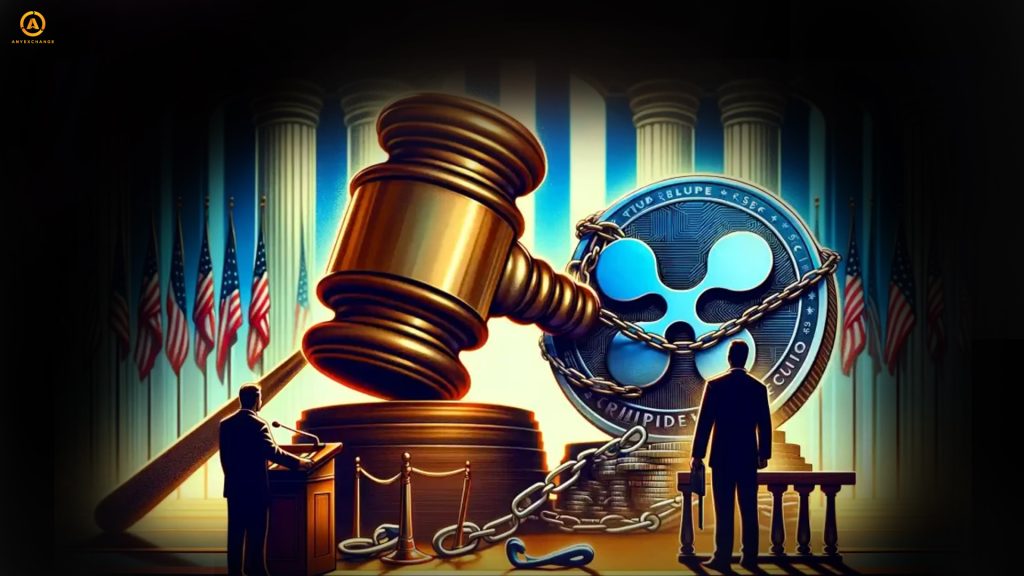
The legal uncertainty of cryptocurrencies has been a concern for investors and traders, national governments and international financial organizations for more than a decade.
The decentralized nature and anonymity of the growing crypto segment is driving more and more capital into the shadows, increasing the risk of money laundering, fraud and terrorist support. Governments miss out on tax revenues, users’ rights are not adequately protected, and cryptocurrency companies cannot prove their legitimacy.
How is the cryptocurrency market regulated today? What is the vector of cryptocurrency legalization process? What are the trends in the implementation of legislation on digital assets?
Let’s take a look at the direction in which regulators in the main jurisdictions (the US and the EU) are moving and how market participants are reacting.
Passions are running high in the United States

The U.S. legal and judicial systеm continues to be actively involved in a number of high-profile cases. American regulators do not tire of putting pressure on cryptocurrency exchanges and blockchain projects, and professional market participants have no intention of giving up. And at the moment, there seems to be no end to this cold war.
Vitalik Buterin interestingly characterized the situation with the existing regulation in the USA, defining it as “anarcho-tyranny”. The Ethereum co-founder in his recent post on Warpcast described the paradox of the collision in which regulators drive crypto projects. Their phenomenon is that the systеm actually encourages dubious startups with vague promises without subjecting them to legal and financial scrutiny. On the other hand, projects that provide clear information about the tokenomics, ownership, costs, revenues and development plans of the product risk being classified as securities and targeted by regulators, with all the consequences that entails.
“The gradient of incentives that this ‘anarcho-tyranny’ creates ends up being worse for the sphere than just anarchy or just tyranny,” the developer said.
Anarchy in the crypto world, in his opinion, consists in the fact that the market gives full discretion to attract investment to “useless” projects without clear financial obligations. Tyranny, on the other hand, manifests itself in the pressure on bona fide projects seeking clarity and guarantee of promises made to investors.
In fact, the level of tension in the relationship between the SEC and the cryptocurrency market is approaching a boiling point. A number of proceedings are underway that could be telling. Professional participants in the crypto segment are fighting not for their lives, but for their rights, using increasingly harsh rhetoric.
Messari CEO Declares War on “Corrupt and Counterproductive” SEC

Ryan Selkis, founder and CEO of Messari, has already become an online celebrity for his constant and unapologetic criticism of U.S. regulators. The top executive of the leading analytics platform said he would launch a war against the “illegitimate” SEC in the coming months, calling its chairman Gary Gensler “incompetent and corrupt.” According to CEO Messari, the SEC is neglecting its duties to protect citizens and ensure market stability by suing cryptocurrency companies without probable cause.
Ryan Selkis presented a draft of Messari’s “Declaration of Independence” from the Commission, which he will soon finalize and send to the SEC and the U.S. Congress. The document questions the legitimacy of the SEC and characterizes the head of the commission as a “counterproductive and helpless official” whose usefulness is close to zero. Gary Gensler, according to Messari’s CEO, serves only himself and the agency’s employees, not users, investors and the market, and acts as a hostile competitor and “redundant” body for cryptocurrency regulation. Selkis cites the following arguments for dissemination to the media, courts, and congressional debate:
Messari, an analytics company, plans to compete with the SEC by providing better and faster reporting and information on cryptocurrency markets that won’t cost taxpayers a dime. Selkari’s proposed reporting rules should bring significant changes to investor disclosure regulations, making the blockchain and cryptocurrency markets more transparent while maintaining all security regulations.
There is even talk of him creating a political fundraising machine for the crypto industry that could influence the outcome of the upcoming presidential election. By the way, last summer, Messari’s CEO stated that the industry would lose its future in the U.S. if Joe Biden was re-elected for a second term.
In any case, Selkis, in one way or another, formulates the general sentiment among professional participants of the American market, who are tired of excessive pressure from the regulator, which in their eyes does not have enough weight, and are ready to resist. This is the case, for example, with the ongoing legal battles with Ripple that have lasted for more than four years.
Ripple has called the SEC a “grandstanding regulator” and is demanding that the fine be reduced from $2 billion to $10 million.
Ripple Labs Inc. says the size of the fine for securities law violations is unreasonable and the treatment is biased. Lawyers for the issuer of XRP, one of the oldest and best-known cryptocurrencies, are asking that the amount be reconsidered because there was no intentional fraud in the company’s actions, investors suffered little harm, and the fine is a disproportionate percentage of gross revenue compared to other precedents. The regulator responded to Ripple’s claim with a denial, calling the proposed amount a “slap on the wrist.” “Ripple is not agreeing to any relief — in fact, Ripple is not agreeing to anything,” SEC officials complained in a letter to the judge presiding over the case. One possible compromise, according to the regulators, was to fire the cryptocurrency company’s management, which Ripple admitted was inappropriate.
Stuart Alderoti, Ripple’s general counsel, noted that the SEC likes to attract media attention and work for the public: “The SEC has become a flashy regulator that chases headlines rather than quality regulation.”
Among the high-profile regulatory actions against crypto market participants in the U.S. this summer, the following can also be cited:
Meanwhile in Europe
While crypto market participants in the U.S. continue their unequal battle with regulators in anticipation of the fall presidential election, cryptocurrency companies headquartered in the EU are bringing their operations into compliance with the new MiCA regulations.
On June 30, the rules on stablecoins began to take effect, and the full application of the MiCA cryptocurrency laws, including the paragraphs on the tokenization of real assets, will take effect on December 30, 2024. This period is considered a transitional period, and not all companies will be able to implement all necessary compliance measures for the new regulations. This may lead to market consolidation, especially against the backdrop of competition between EU countries for the status of the center of crypto activity, creating optimal conditions for large players. Already today we can say that MiCA is creating an optimistic mood in the market, especially among institutional investors.
Circle becomes first licensed stablecoin issuer under MiCA
Circle CEO Jeremy Allaire announced on July 1st that the company has become the first to be licensed to issue USDC and EURC stablecoins under the EU regulatory framework and MiCA rules. The license confirms the company’s compliance with the new legislation in terms of safeguarding the reserves of this asset class, meeting the requirements of auditors, complying with security standards and minimizing risk, combating financial crime and terrorism.
At the same time, it becomes known that some exchanges plan to stop listing stablecoins that do not comply with the updated legislative norms in the European Economic Area. We are talking about crypto exchanges such as Binance, OKX, Bitstamp and Uphold and their possible restrictions on USDT, EURT, DAI, FRAX, GUSD, USDP and TUSD.
Major stablecoin issuers are concerned about the MiCA regulations and are discussing ways to comply with the new legislation. The main concern for them is onshore provisioning. By the end of the summer, it will be clear which companies will be allowed to operate in the EU. Algorithmic stablecoins, whose collateralization is achieved through algorithms and smart contracts without classical reserves, are most at risk.
Conclusion
The EU crypto market is now undergoing significant changes and will receive the most transparent regulation. Stablecoins will be the first to receive legal status, which is very important as it will undoubtedly increase investor confidence in the sector.
The focus of cryptocurrency regulation in the U.S. today is on resolving conflicts between regulators and professional participants in the segment, and is somewhat behind in innovation.
Other jurisdictions with crypto regulation on their agenda are likely to adopt the successful experiences of jurisdictions currently in the testing phase of MiCA rules.
And we will continue to monitor the evolutionary processes in anticipation of increased stability and reliability of the global cryptocurrency market.
Thank you for your attention!
AnyExchange is an exchanger with which you can convert cryptocurrency at the most favorable rate . Fast money transfers worldwide are also available on our platform.






